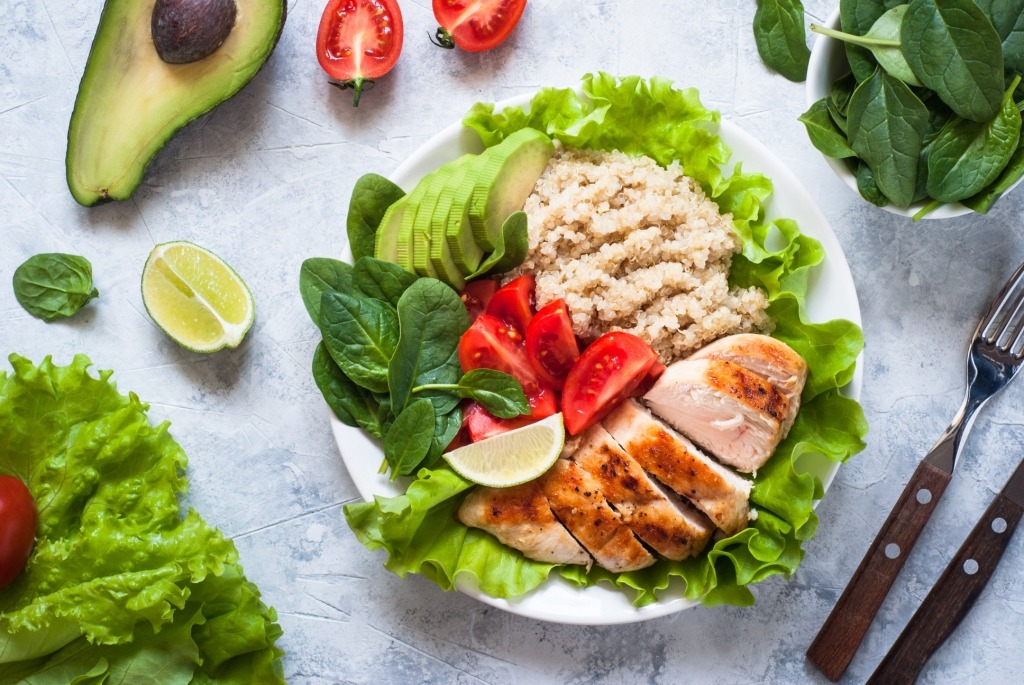Are you trying to lose some weight? If your answer is yes, is one of your strategies to cut down on your food intake? While consuming a large portion of food does lead to weight gain, but completely cutting down your food portion to one meal per day or starving yourself isn’t the best way to achieve the ideal body you’re aiming for.
 When it comes to weight loss, more often than not it is associated with diet plans and intermittent fasting. However, some would suggest to eat every few hours to avoid starvation. So, ask yourself this, “Should I be eating more often?” If so, how often should you eat in order to shed some weight?
When it comes to weight loss, more often than not it is associated with diet plans and intermittent fasting. However, some would suggest to eat every few hours to avoid starvation. So, ask yourself this, “Should I be eating more often?” If so, how often should you eat in order to shed some weight?
The truth is, there is no perfect diet plan that will suit everyone when it comes to losing weight the healthy way. To find the most appropriate weight loss method, you will need to be committed and have patience.
Worry not because there are plenty of steps you can take that will help you to develop a healthier relationship with food and maintain a healthy weight at the same time. To help you decide what is right for you, here are some common questions you should ask yourself before jumping on the weight loss bandwagon.
Eat more or eat less to lose weight?
Generally, when people decide to go on a weight loss journey, they try to cut down their food intake or skip their meals. However, cutting down on meals or going on a ‘starvation mode’ isn’t going to help you achieve your weight goals.
Along with that, eating more frequently doesn’t improve your blood sugar level nor does it increase your overall metabolic rate or the number of calories you burn in a day.
Prioritising high quality foods
For some individuals, it is necessary for them to eat more than their usual intake, while for others it requires them to cut down their serving size in order to burn some calories.
Instead of having to eat highly refined and processed foods, you should consider consuming foods that are high in fibre as well as having more complex carbohydrates such as fruits, whole grains, non-starchy vegetables, nuts and beans. This is because complex carbohydrates and fibrous foods take a longer time to digest. Therefore your body uses more energy to break them down which results in weight loss.
The bottom line is, it all comes down to how you plan your meal. Generally, eating at least three meals a day, made up of nutritious foods, should keep your hunger at bay. This is good because eating fewer than three meals per day could result in overeating and hunger pangs.
Breakfast basic
It doesn’t matter if you end up eating three or six meals a day, if you’re skipping your breakfast. It’s common sense, if you wake up hungry, do eat! People who skip their breakfast tend to eat more than they should by the end of the day. Research suggests that eating a large portion of breakfast and smaller lunch and dinner along with less snacking may promote a better weight management to improve appetite throughout the day and decrease your calorie intakes.
Remember, a large breakfast isn’t about eating two or three times the portion of what you should be eating. Instead it should be combining healthy meals such as fruits, whole grains and lean proteins into your breakfast plan and eating according to your calorie intake.
 Healthy eating for a healthy weight
Healthy eating for a healthy weight
It is true that weight loss isn’t a cakewalk. However, with the right eating habits and regular exercise, it is safe to say that weight loss is very possible. A healthy weight involves many choices and one of them is choosing a healthy eating plan.
A healthy eating plan includes:
- Sufficient amount of protein, fibre, fat, calcium and carbohydrate.
- Stay within your daily calorie needs.
- Preparing your own meal as you get to take charge of the ingredients you include in your food.
- Stay clear of unhealthy foods, such as oily foods and replace them with healthy
- alternatives such as switching deep-fried chicken for grilled chicken.
- Last but not least, drink plenty of water to help flush out waste
- products and toxins from your body.
It doesn’t matter which weight loss strategy you’ve tried, it’s crucial for you to stay motivated and avoid common dieting pitfalls to occur such as emotional eating.
Sources: HelpGuide, Healthline, Shape










